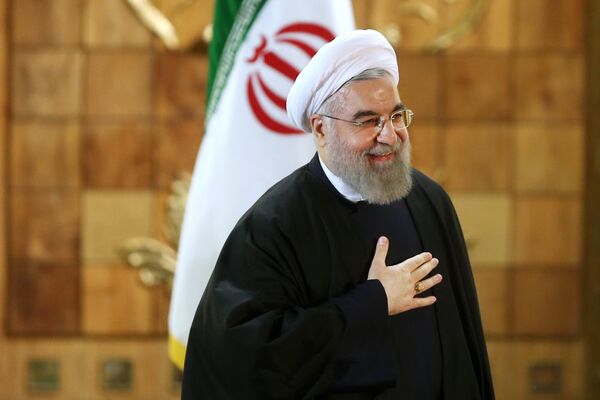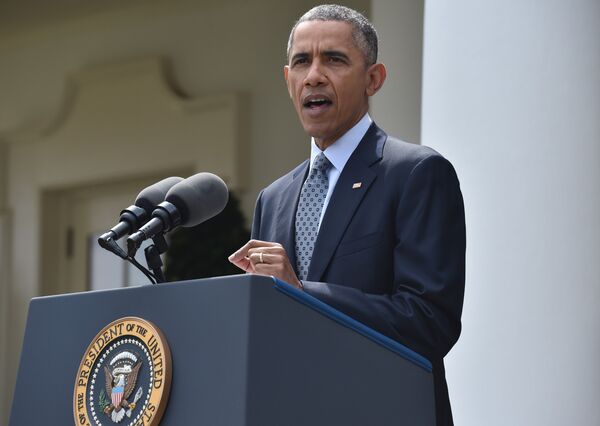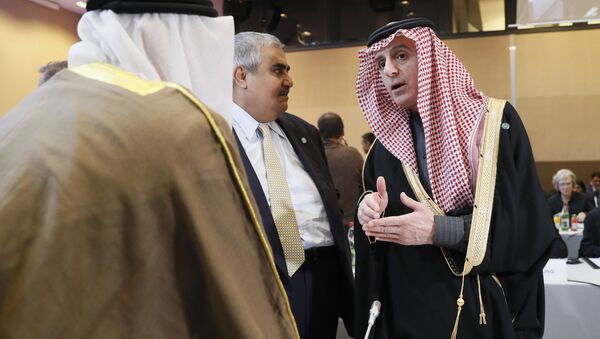As the US shifts from the Obama to the Trump administration, many have speculated about how this change will impact on the Middle East, particularly given Trump's threat to tear up the Iran nuclear deal.

Dr. Simon Mabon, lecturer in International Relations at Lancaster University, told Sputnik that Trump's harder line on Iran is likely to please long-term US allies in the Gulf, such as Saudi Arabia and Bahrain.
My @GulfStatesInst colleagues @ProfessorKaren @kdiwaniya & I each look at
— Hussein Ibish (@Ibishblog) January 24, 2017
Trump Admin & Implications for Gulf Stateshttps://t.co/2Uk2sNsoFV
"This is music to the ears of many across the Gulf who view the nuclear deal as a chance to embolden Iran and to provide it with economic incentives and the financial might to provide support to a whole host of different groups across the region. These groups, such as Hezbollah in Lebanon, and a number of different groups in Iraq are often viewed as terrorists by many in these Sunni Arab states. So I think that a harder line that Trump would take against Iran would be viewed in a very favourable way by these Gulf monarchies."
During Obama's time in the White House, there were concerns in the Gulf that Washington's perceived withdrawal from the region, along with improving US relations with Iran, would leave Gulf states isolated and exposed to Iranian influence.

However given Trump's rhetoric in the region, Dr. Mabon expects the US to re-assert itself in the Middle East.
"I think that with Trump coming to power there is a hope that he would play a more proactive role in the region; more proactive in standing up to Iran and providing support to the US' longstanding allies, such as Saudi Arabia, Bahrain, Qatar, the UAE etc. So I think there's a hope that Trump will massively move away from Obama's policy and become re-entrenched in the region."
Israel, 9/11 Tension
While Dr. Mabon says countries in the Gulf are more likely to favor Trump's administration over that of Obama's, he notes that there are a number of issues that could spark tensions between Washington and Arab states.
He told Sputnik that Trump's "hugely controversial" proposal to move the US' Israeli embassy from Tel Aviv to Jerusalem would "have serious repercussions for US relations with the Arab world generally."
White House statement on Trump call with Netanyahu reaffirms support for Israel security but makes no mention of moving embassy to Jerusalem
— Peter Baker (@peterbakernyt) January 22, 2017
"It would definitely put the Israeli-Palestinian peace process back on the table in terms of its importance, so I think there are a lot of cards up in the air in terms of what will happen in the future, particularly so with regard to the US embassy."
And while Dr. Mabon believes Gulf states were likely to "turn a bit of a blind eye" to any anti-Muslim sentiments in Trump's domestic policy, he says another issue could lead to diplomatic tension.
Trump has taken a hard-line pro-Israel stance and has also said he hopes to talk the gulf states into paying for a Syria plan.
— Josh Barro (@jbarro) December 28, 2016
"I think the biggest problem is this legislation that allows for the victims and families of the victims of 9/11 to sue the Saudi government, amongst others. [However] let's not forget this was Obama's legislation rather than Trump's, so I think that that would be taken with a pinch of salt as well in terms of the impact."


